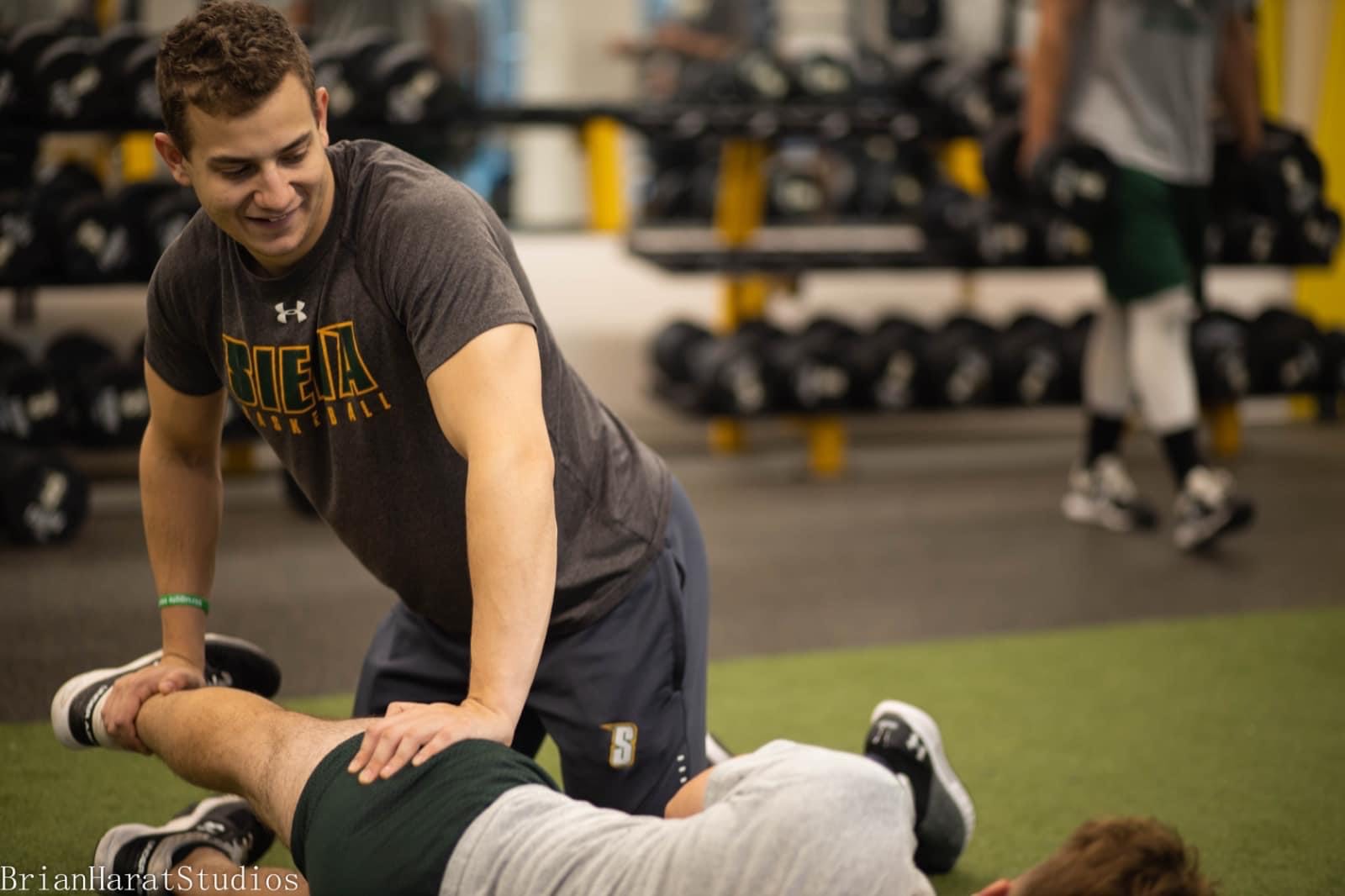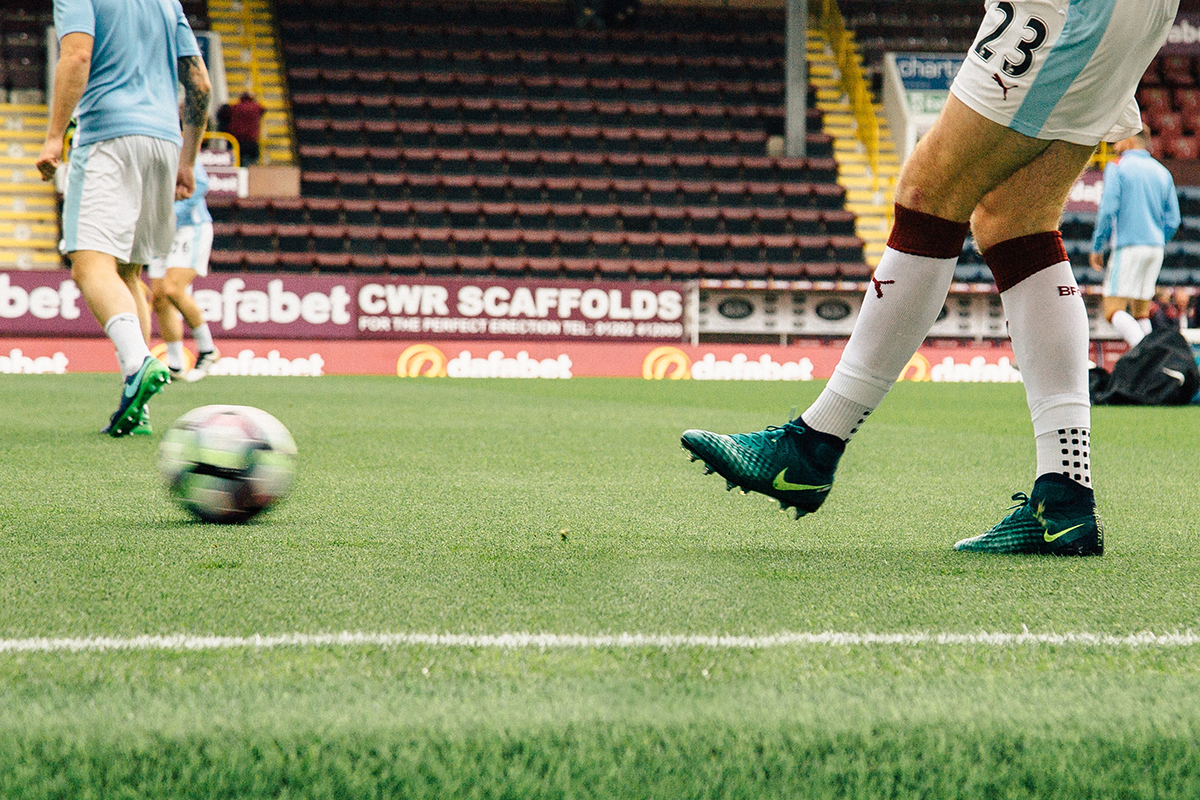Expanding Your Support Team
Expanding your support team
Talking about obsessive compulsive disorder (OCD) can be hard, especially with people who buy into the misconceptions surrounding the disorder or have no prior knowledge regarding how it impacts an individual. As a result, thinking about opening up to a loved one, friend, teammate, or coach can feel daunting, unpredictable, or maybe just outright nerve racking. That was certainly the case for me, as each initial OCD conversation felt like a step into the unknown.
There was a palpable element of shame, alarm, and confusion before I opened up to my mom about certain intrusive thoughts I was getting — not yet labeled as a product of a disorder. However, opening up to my mom paid dividends. That first conversation was critical in later identifying OCD as the culprit, seeking resources, beginning treatment, and deconstructing the stigma surrounding what I was dealing with.
Sharing with my mom taught me not only the power of opening up to others, but also the benefits of facing life’s challenges head on. Growing a support system of trustworthy people who know your struggles may sound scary, but the pros of doing so largely outweigh the perceived pros of avoidance, which, as many know, is a false safety net.
Sharing beyond the household
Expanding the circle of individuals (beyond my mom and immediate family) who knew about my OCD was significantly more difficult, which is to be expected, as different relationships vary in closeness and trust. Entering the scene of Division 1 NCAA athletics, this was further magnified. I found that the space is very conscious of certain mental health struggles that tend to be more prevalent in athletes, such as disordered eating and general performance anxiety, but that awareness doesn’t spread much further to OCD, its wide range of manifestations, and the particularities of its treatment.
Thus, while it is great that many schools are taking the initiative to offer more resources for their athletes to promote their holistic wellbeing, those resources can be ineffectual for athletes who struggle with one or more subtypes of OCD. There seemed to be a profound disconnect between the world of sports and the scholarship surrounding OCD, and this gap of knowledge isn’t something that should be overlooked in one’s decision to inform someone in the sports world of their OCD diagnosis.
Recruiting standards
Deciding whether or not it is beneficial to recruit a coach to your OCD support team should be based on several factors. Ultimately, you are looking for someone trustworthy, who cares about your wellbeing. The following questions can help serve the purpose of gauging trustworthiness objectively.
- Has the coach identified his or her office as a safe space to openly share? Is conversation confidential?
- Does the coach look at an athlete holistically?
- Does the coach encourage and welcome open communication from his or her athletes?
- Does the coach acknowledge the role of mental health along with physical health in athletics?
If the answer to these questions is “yes,” then this could be a beneficial opportunity to grow your support system. If one or more of these yields “no” as an answer, it is probably a better option to forgo sharing with your coach and seek support elsewhere. You can usually piece together the answers to these questions simply by getting to know your coach over the course of one or more seasons.
When to share
My recommendation is to not have OCD be a part of the first conversation between you and your coach. While I do believe that this information can and should be shared at your discretion, I personally think that a better approach is to let the coach get to know you first, both as an athlete and as a person, rather than as a victim of sticky intrusive thoughts. Because OCD doesn’t define YOU. Don’t give OCD power by letting it label you in a relationship!
Degrees of disclosure
Although my support system has grown over the years, it consists of people who know of my OCD to varying degrees. My mom and my therapists are people who I feel comfortable sharing every detail with. With my closest friends, who also happened to be my teammates in high school, I have shared as much as my subtype, what kinds of exposures I am working on, and what my current treatment looks like.
As of now, only a few of my college teammates even know that the buzzword “OCD” pertains to me, excluding any more private details. This may be subject to change over time, but for now, that is where my comfort level is. The same goes for my coach. He knows of its presence in my life, its severity, and my present treatment, but no specifics regarding subtype nor particular intrusive thoughts. You are free to share as much or as little with your coach, keeping in mind the depth of the relationship, their trustworthiness, and the pertinence of the OCD to behavior on and off the playing field or track.
Furthermore, talking about OCD doesn’t have to be an “all-or-nothing” situation. Never feel obligated to share specifics with an individual unless it is your prerogative. It is also important to note that sharing is a process that should be done on your timeline. Don’t feel rushed to unveil every detail in a single conversation. In my experience, the people I share with may ask questions, but it is entirely up to you whether or not you choose to answer these questions. Don’t let them dictate how and when you tell your story. Your story is just that: yours. Their curiosity is natural, but don’t mistake it as pressure to go into more detail. Unless it is something you are comfortable with, you can simply say, “I’d prefer to keep that private for now,” or, “I’d rather not share those details at this moment.”
Clearing up confusion
Also, keep in mind that coaches, teammates, and peers are not trained mental health professionals. They naturally won’t have the same knowledge as an OCD specialist, and it is unfair to expect them to have a full grasp of the totality of the disorder. Be prepared with resources to direct them to if they want to learn more, or if you are having a difficult time verbalizing how OCD impacts you individually. Direct them to iocdf.org, where they can learn more about OCD and better understand how to support you.
They may not be aware of the severity of the disorder, the presence of numerous subtypes, and the ways in which the disorder is often misrepresented by our culture. We can help educate and deconstruct this stigma by sharing not only our personal experiences, but also the vast scholarship.
Final thoughts
As you work to expand your support system, don’t let fear of the unknown override your decision to share your experiences with others. Fear keeps us boxed in, and oftentimes it clouds our ability to see the benefits of seeking support. Base the choice on objective reasoning, and accept that there will always be some level of uncertainty or apprehension before doing something that takes bravery.
There is no perfect way or moment to share, but the benefits of having a support team are there regardless! A coach who is trustworthy and cares about your wellbeing could just be a great addition to this team.
Kyra Compton is a collegiate athlete studying architecture at the University of Pennsylvania, running Division 1 cross country and track year round. She was diagnosed with OCD in middle school and experienced relief for the majority of high school, but relapsed entering her freshman year of college.



